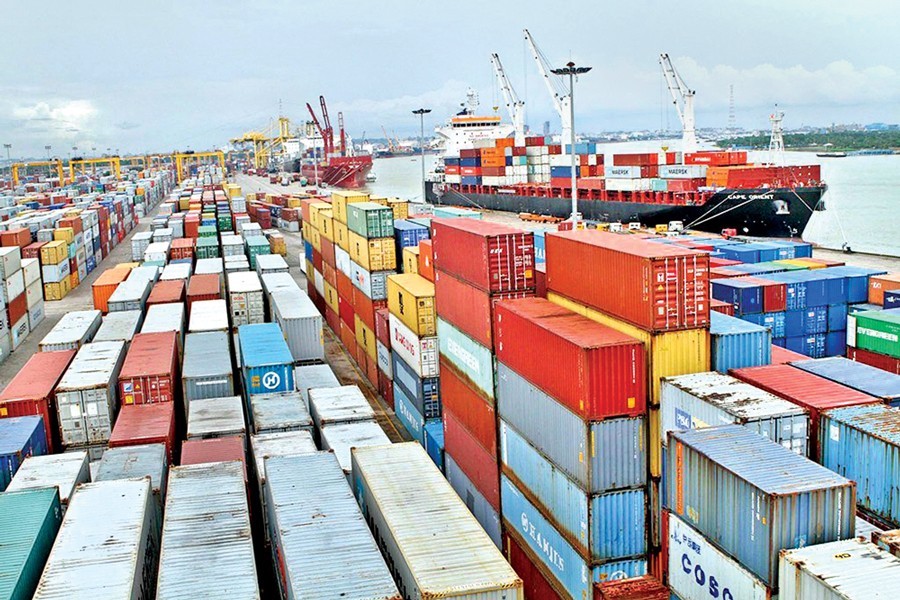Transport strike disrupted communications across the country on Sunday, taking a heavy toll on trade and economic activity.
According to business circles, overall commodity supply chain, export-import activities were severely halted.
Export and import of goods to and from Dhaka, Chittagong and Mongla ports also got hampered.
However, the supply of food and other consumables was halted for unavailability of transport.
Bangladesh Transport Workers Federation called the 48-hour nationwide strike since 6:00am to realise their eight-point demand.
Amendment to some sections in the Road Transport Act (RTA), passed in parliament on September 19, is one of their key demands.
All intercity buses and goods vehicles, excepting state-run Bangladesh Road Transport Corporation (BRTC) buses, stayed off the roads.
Benapole land port losses its daily revenue of around Tk 310 million as no truck from Bangladesh side crossed the border.
"Not a single transaction was made at Benapole port on the day," said commissioner Belal Hossain Chowdhury.
He said export loss could not be assessed as different items with different quantities are sent to India.
The Chittagong Port Authority apprehended congestion as goods transportation from the port could not be possible on Sunday night.
Bangladesh Garment Manufacturers and Exporters Association (BGMEA) estimates more than Tk 85 million daily loss from its export earnings of Tk 31 billion.
Business community and civil-society members sharply reacted to the ongoing strike, urging all concerned to seek a permanent solution to this problem.
They said nobody supports strike holding people hostage and crippling public life.
BGMEA president Siddiqur Rahman demanded a permanent solution to this 'undesirable' action that disrupts business in the name of strike.
"A few days back, similar strike was averted with the home minister's assurances. But we don't find any solution afterward," he told the FE over phone.
Mr Rahman urged the government not to address the problem on a piecemeal basis and find a solution after reviewing the workers' demands.
Architect Iqbal Habib, joint secretary of Bangladesh Environment Movement, termed such strike 'a reflection of nasty politics' which is usually called before a national election.
"A section of unscrupulous leaders, who show up as both owners and workers, misguide the workers by calling strike for their political gains," he told the FE.
On workers' demands, Mr Habib said the RTA has, for the first time, addressed the wrongdoings of all concerned, including private car owners and road designers.
It has broken the typical public perceptions that drivers and workers are mainly responsible for road accidents, he mentioned.
Meanwhile, our Chattogram correspondent adds: Delivery of cargoes from Chittagong port remained suspended since Sunday morning following a countrywide transport strike.
Movement of all modes of vehicles to and from the port also remained suspended until filing of this report at 6:00 pm.
As a result, the export-import activities through the country's main seaport came to a halt.
No truck, covered van, trailer or other modes of vehicles could enter the jetties or container and cargo yards to take delivery of cargoes from Chittagong port or take export cargoes to the ships from across the country, said officials at Chittagong Port Authority.
Transport workers enforced a 48-hour strike from 6:00 am on Sunday to press home their 8-point demand including an amendment to recently-passed Road Transport Act 2018.
Road Transport and Bridges Minister Obaidul Quader ruled out the possibility of making any amendments to the act before the upcoming parliamentary election.
Member (Admin and Planning) of Chittagong Port Authority Md Zafar Alam said no truck, covered van or long-distance vehicles could enter the port sheds to take delivery of containerised or bulk cargoes since the morning.
Only a very few vehicles took delivery of cargoes early in the morning before the transport strike began. "But we don't know if those vehicles could reach their destinations," he added.
However, loading and unloading activities in the general cargo berths, specialized container terminals and the outer anchorage of Chittagong port remained normal, he said.
He told the FE that as many as 4,500 containers are delivered from the port sheds a day for taking import cargoes to the nationwide production units.
The lion's share of these cargoes is destined for production units in the RMG (readymade garment) sector, the major export earner of the country.
Production in the country's garment factories will be hampered severely due to the transport strike, he said.
It will also hit the export sector hard as the exporters could not reach their export products to the ships waiting for shipment of export cargo on time.
Expressing discontent over the situation caused by the strike, CPA Member Zafar Alam suggested that the port activities should be kept outside the purview of all types of hartals, strikes and movements as the country's economy, import and export and businesses are solely dependent on the performance of the Chittagong port and other ports and ICDs (inland container depots).
"The activities at the port come to a halt due to movement or work abstention. But the country must keep running the wheels of economy first for the sake of its people," he observed.
[email protected] & [email protected]


